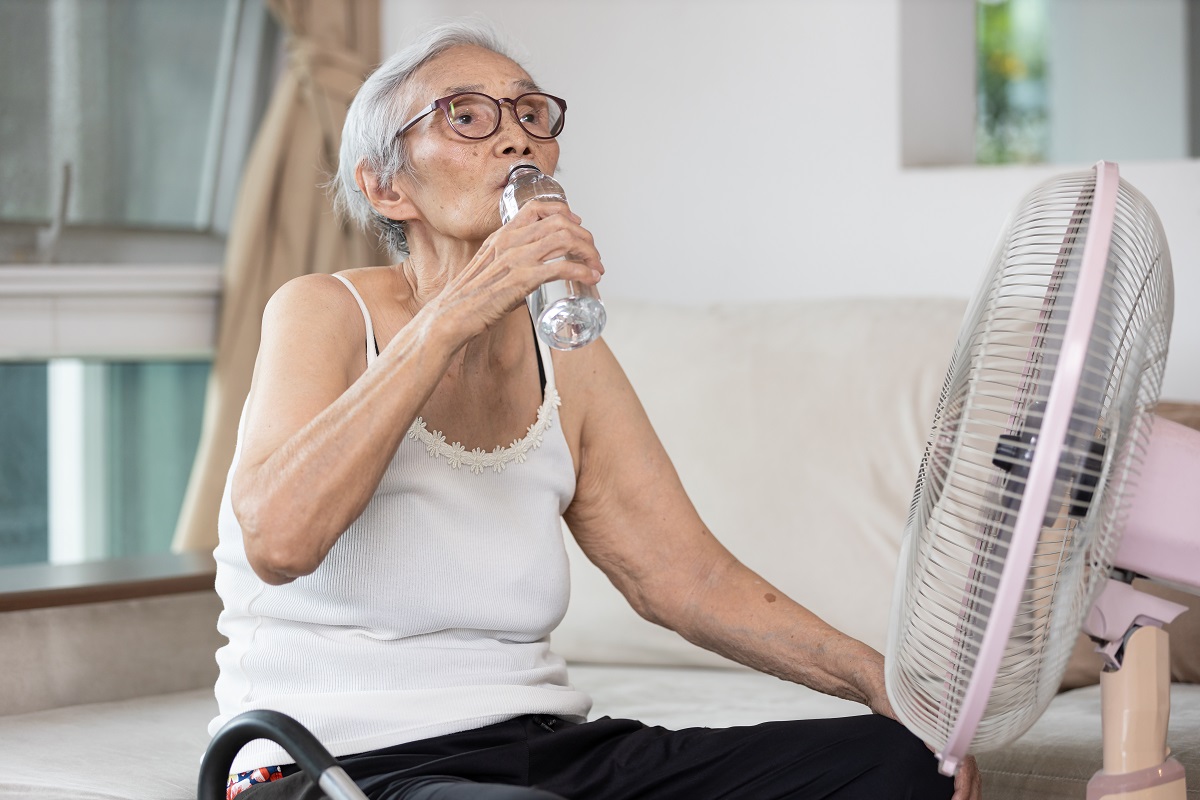Proper hydration is important for people of all ages, but the elderly are particularly susceptible to dehyration. Their bodies have less fluid that they may not replentish due to a decreased thirst response. Decreased kidney function, underlying medical issues, and certain medication can lead to poor hydration.
Although all people can experience dehydration, and it can be dangerous for people of all ages, older people are especially vulnerable. Knowing the signs, preventing dehydration, and having tactics to combat it are all important for caregivers and loved ones to consider.
Why Is Dehydration Common In Elderly Patients?
Dehydration happens when people do not have adequate fluid intake to properly sustain the body. Put into simpler terms, the body uses more liquids than it takes in. There are many reasons why dehydration is more common in older people than in others.
- Loss of Kidney Function: Whether from kidney disease or other health conditions, older people are more likely to have kidneys that don’t function at full capacity, which can lead to dehydration.
- Lower Fluid Content: A person’s fluid content also decreases with age. One explanation for this is that lean muscle mass holds water, while a side effect of age is losing muscle.
- Medications: Many prescription drugs can cause dehydration. Talk to your pharmacist and physician if you notice signs of dehydration and do not feel that you have changed your liquid intake. Diuretics are prescribed to many elderly people, which can lead to dehydration concerns.
- Not Drinking Enough: Although that may seem obvious, sometimes people fail to recognize that this is happening. Sometimes people drink less due to incontinence or urinary frequency, both of which can be embarrassing problems.
- Thirst Decreases: Older adults have less desire to take in liquids because their feeling of being thirsty actually goes down as people age., so they are at greater risk for dehydration.
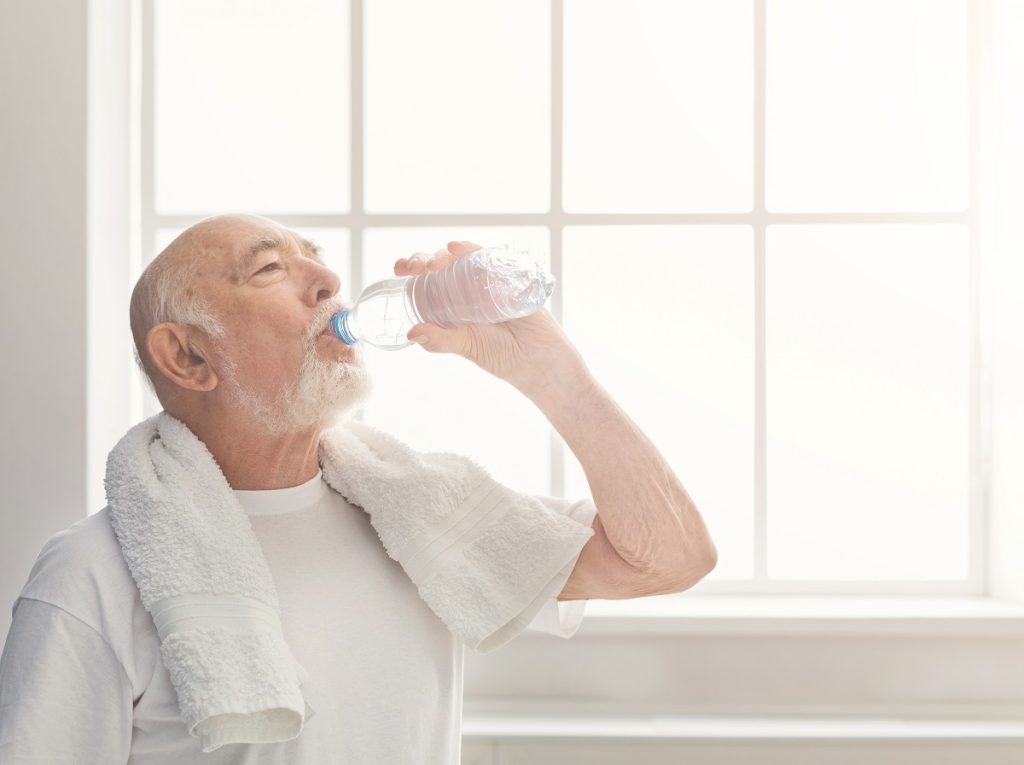
What Factors Lead to Dehydration?
Many risk factors can lead to dehydration, whether you are an older adult or a younger person.
- Exercise: Exercising without taking in enough water or electrolyte beverages will put you at a higher risk of dehydration. If you start to experience muscle cramps while working out, you likely need to hydrate.
- Fluid Deficit: No matter your age or what you are doing, how much water you take in will determine your hydration level. If you don’t take in an adequate amount of water to properly sustain your body, you are at risk.
- Heat: Spending time in very hot or sunny conditions can lead to dehydration. Hot weather can lead to excessive sweating, which can become dangerous unless you increase the amount of fluid you take in.
- Illness: Certain illnesses can lead to dehydration, especially if you have a fever or are experiencing gastro symptoms that have you vomiting or diarrhea. Drinking water or another clear liquid can help.
In the elderly, many factors can be at play with dehydration.
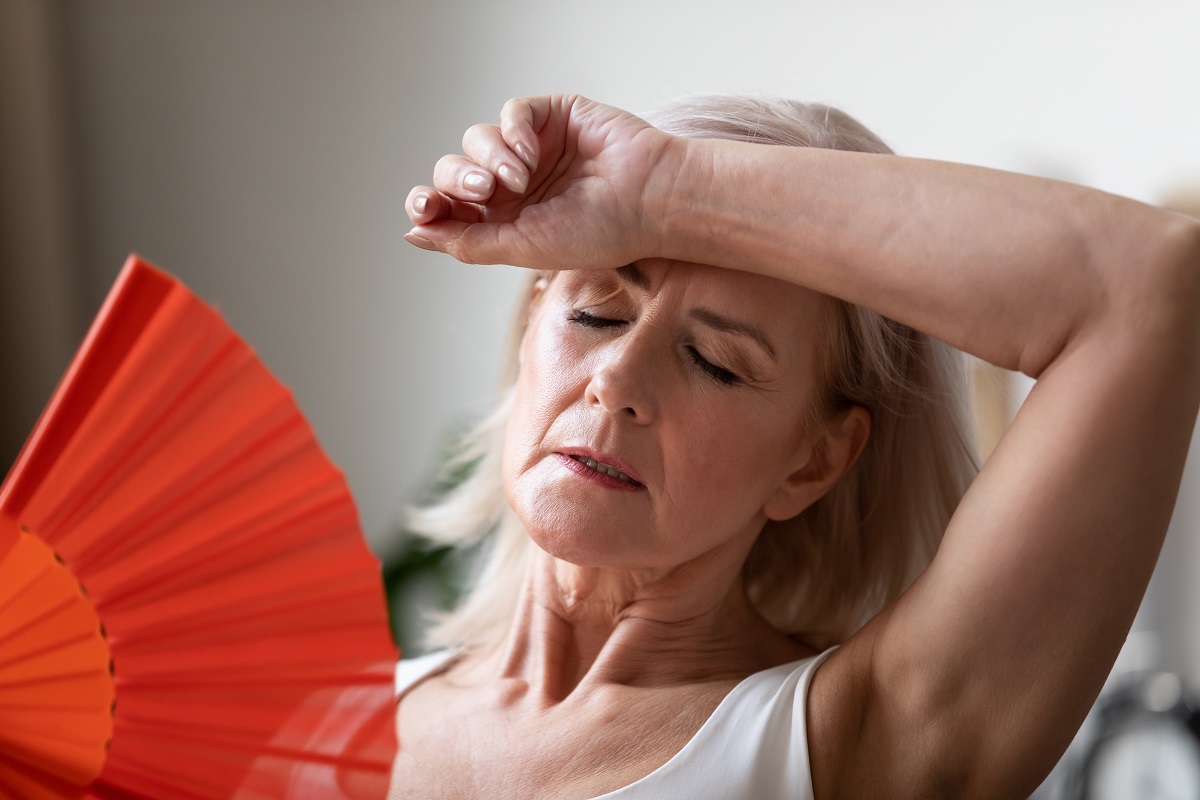
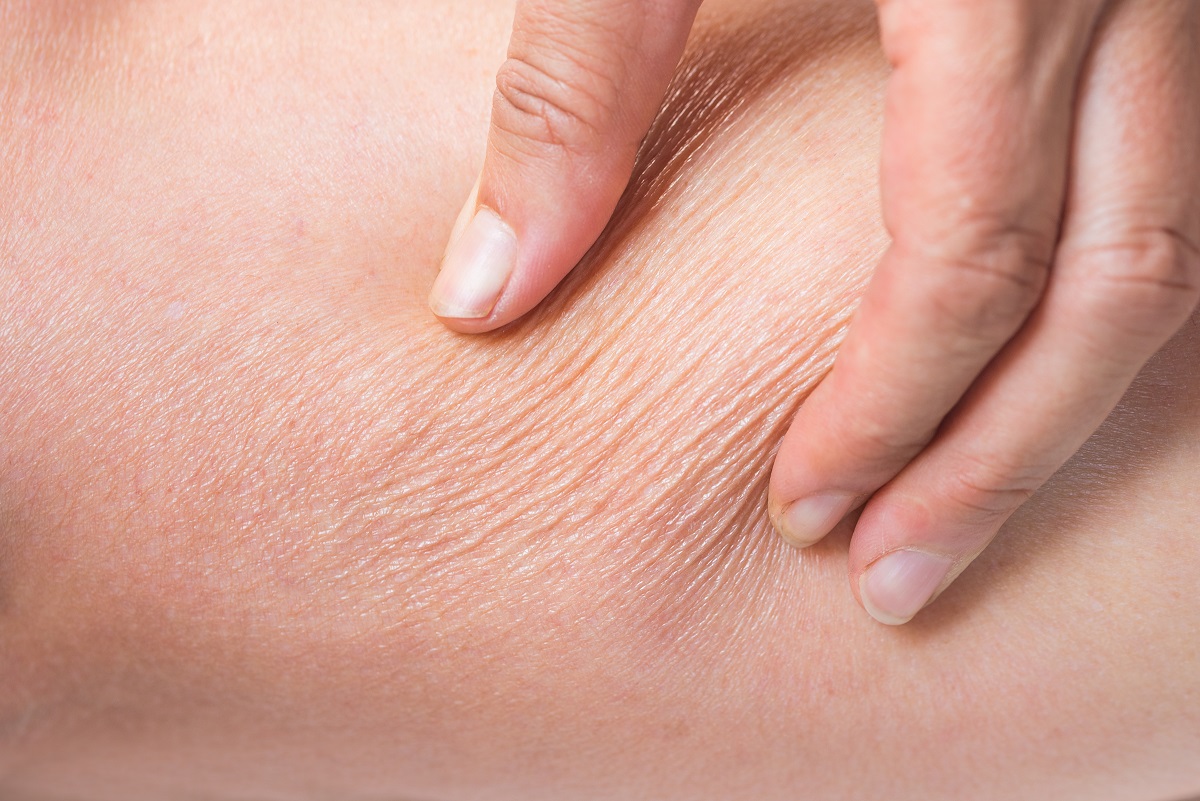
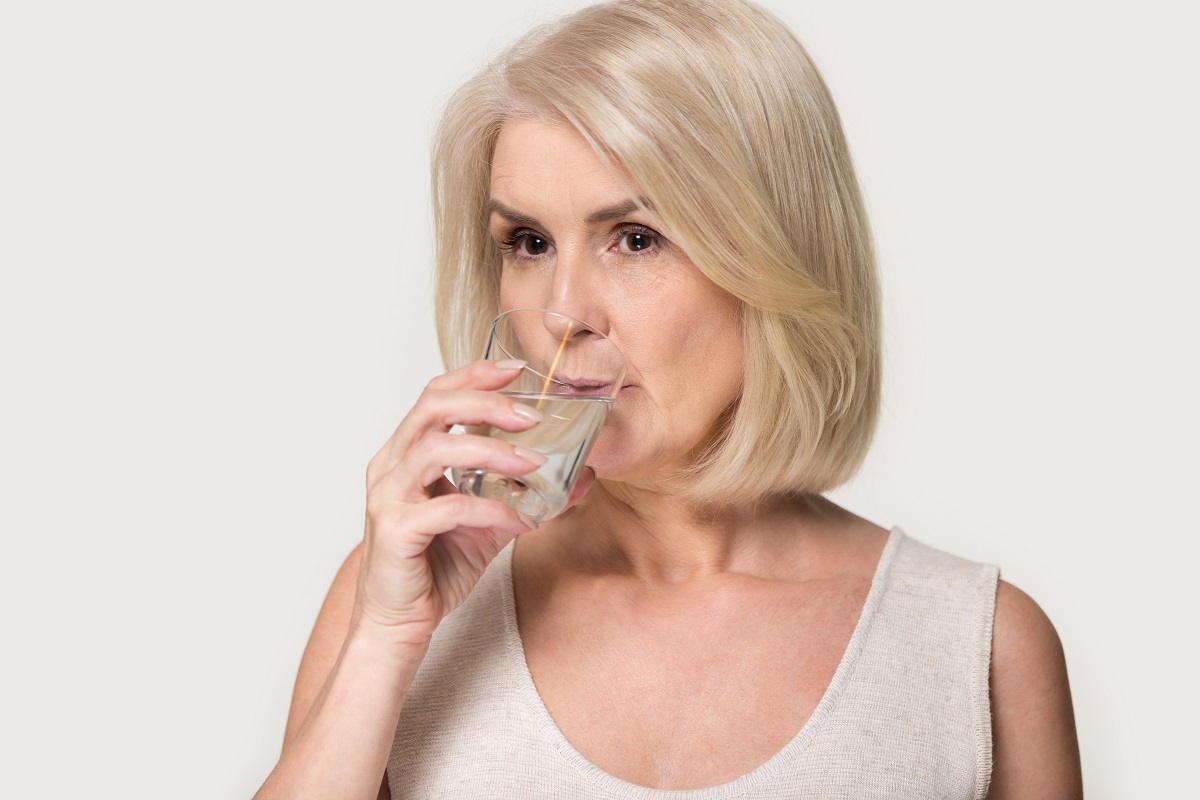
What Are The Signs And Symptoms Of Dehydration In The Elderly?
Signs and symptoms of dehydration are important for caregivers and loved ones to recognize.
- Constipation
- Dizziness or lightheadedness
- Dry mouth and lips
- Fatigue
- Headache
- Infrequent urination
- Low blood pressure
- Rapid heart rate
- Urine is darker in color than normal
Note: There are also signs of severe dehydration, such as sunken eyes, very dark-colored urine, or not passing urine at all.
Combating Dehydration
There are many things you can do to combat dehydration:
- Drink More: This one seems simple enough, doesn’t it? To combat fluid loss, you need to take in more fluids. Whatever liquid you take in counts; although, if it has caffeine, it also has negative factors. Sports drinks help to restore electrolyte imbalances and combat dehydration.
- Eat More Fruits and Veggies: Fruits and vegetables have a high water content. This is especially true of foods like watermelon, strawberries, and celery.
- Other Foods: Many other foods will help you hydrate, such as soups. If you are not hungry, you can sip on broth for hydration.
- Shade: Although there are benefits to being in the sun, staying in the shade reduces the risk of getting dehydrated. You still need to drink water and use sunscreen, though.
The average person should take their weight and divide it by a third. That is how many ounces you should try to drink each day. That equates to roughly five glasses of water (or other liquids) each day.
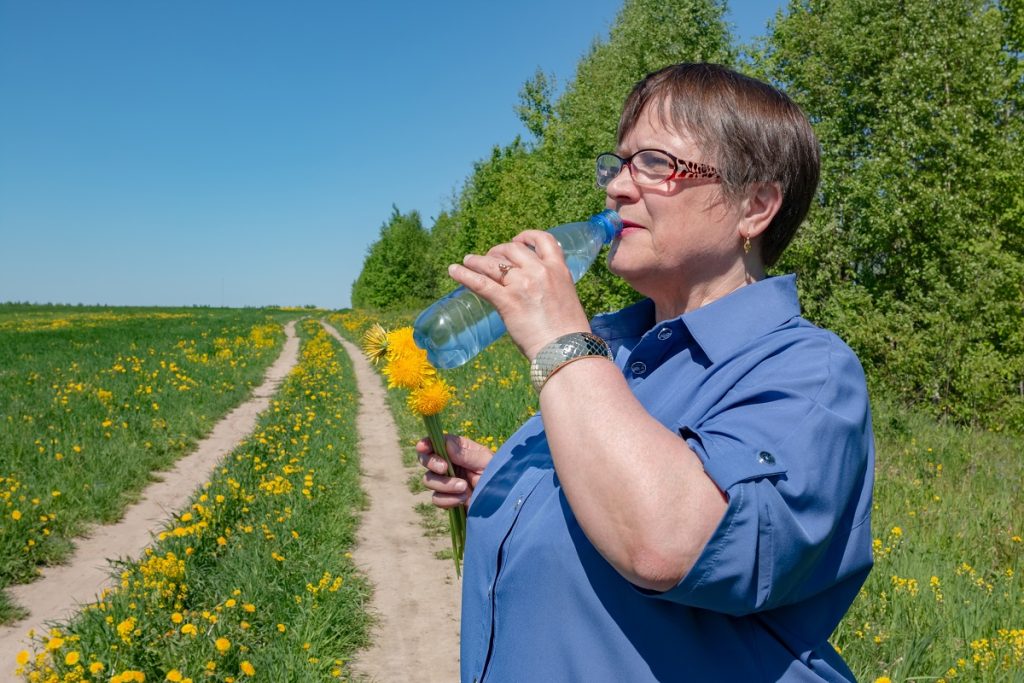
Why Does Heat Put The Elderly At Risk For Dehydration?
Heat increases the risk of dehydration in everyone, not only the elderly. Increasing water intake is essential if you are going to be outside or spending any length of time in hot temperatures or direct sunlight.
Sweat output often exceeds the rate at which people take in fluids during hot temperatures. This also can lead to an electrolyte balance, so it is important to drink something that can restore electrolytes in extreme temperatures. Sports drinks such as Gatorade or Powerade are examples of these, which are available almost anywhere.
What Are the Risks Of Dehydration?
Dehydration can lead to problems ranging from minimal to some very serious consequences. One of the easier-to-identify problems is constipation. Drinking less water than is recommended can be problematic in this regard.
Spending time outside and getting dehydrated can lead to heat-related illnesses such as heat stroke. Heat stroke is very dangerous and can cause permanent damage. If not treated, severe dehydration can lead to brain or kidney damage and even death.

How Can A Caretaker Hydrate Elderly Patients?
If you are taking care of your elderly parents and are looking for advice on how to keep them hydrated, we have some great ideas for you.
- Choose foods that are hydrating and make them easy to grab. For example, keep bowls of fresh, cut fruit on hand, which are easy to eat. Vegetables cut up and kept in the refrigerator with dip may go faster than those not as accessible. Consider making tasty soups and appealing salads for lunches and light dinners. All of these foods have hydrating qualities.
- Keep a variety of beverages on hand. Experiment with beverages at different temperatures.
- Make water more appealing with flavoring. You can add flavor packets such as lemonade or flavor drops.
- Popsicles, frozen yogurt, smoothies, and protein shakes are all sources of both calories and fluids that may entice your loved one more than plain water.
- Sparkling water or juices can entice older adults to drink more.

